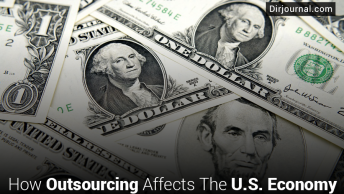Germany’s top international investment bank, which has been widely recognized for its progress, and had won a great deal of praise and notable envy in the financial circles for appearing to weather the storm of the credit crisis better than the others, has reported its first loss in many years as the credit crunch crumbled financial industry strength.
Hailed by many as one of the banks not affected by the credit crisis, unlike UBS and Royal Bank of Scotland who had to turn to shareholders to raise cash, Deutsche Bank finally bowed down to pressure.
Deutsche Bank earns most of its profit, almost 50% from fixed-income, such as asset-backed and other structured securities, and many of these business areas dried up due to the credit crunch.
The exact figures of the loss are reported be a net loss of 141 million pounds or 27 cents per share, for the first quarter of 2008, as well as a loss before income tax of 254 million pounds.
Deutsche Bank had to let go of its 2008 profits target by writing down 2.7 billion euros towards contribution to the global property-based asset mark-downs, which include loan commitments, leveraged loans, residential mortgage-backed securities and commercial real estate.
Analysts believe that Deutsche Bank saved itself from further loss by selling the shares in Allianz and Linde and Dailmer, and booking gains.
Chairman of the Management Board, Dr. Josef Ackermann said, in the first quarter of this year, financial market conditions were the most difficult in recent memory. In the month of March, pressure on the banking sector was more intense than at any time since the current credit downturn began. Inevitably, this left its mark on Deutsche Bank’s results. Nevertheless, relative to the environment and the industry, this is a solid performance.”
He also added, “Deutsche Bank’s position is clear. We remain rigorous in controlling costs and monitoring investment spending. We are redeploying both human and capital resources towards growth businesses and regions. We are swiftly and decisively reducing our risk exposures. We have consolidated our capital strength.
We re-affirm our strategy and our business model. Our integrated ‘one bank’ approach has proven its worth and is essential to our success and our ability to create value for our shareholders. We have captured market share in some important areas. The fundamental trends shaping our operating environment are unchanged, and Deutsche Bank is very well-positioned to emerge stronger than ever from a recovery in business conditions. We are equally determined to meet near-term challenges, and to take advantage of longer-term opportunities.”
Most worrying for investors is that the Deutsche results, the German Bank’s worst since the collapsing of the dotcom bubble, showed signs of more problems. Deutsche’s investment bank revenue went down from 6.1 billion a year ago to 880 million euros in the first quarter.
If it is any consolation, analysts say that the losses suffered by Deutsche Bank are much smaller and pale in comparison to those of the UBS or Credit Suisse. It has written down $7.8 billion (5 billion euros) since the beginning of the crisis, which is much lesser than the Citigroup or UBS, which reported the largest write-downs of approximately $19 billion in the first quarter alone.
In fact, this was expected as Deutsche Bank had given a warning last April, to the markets, saying it expected write-downs of around 2.5 billion euros in the first quarter. While their prediction has proven to be correct, analysts are keeping a close watch on Deutsche bank to see how they recuperate.












